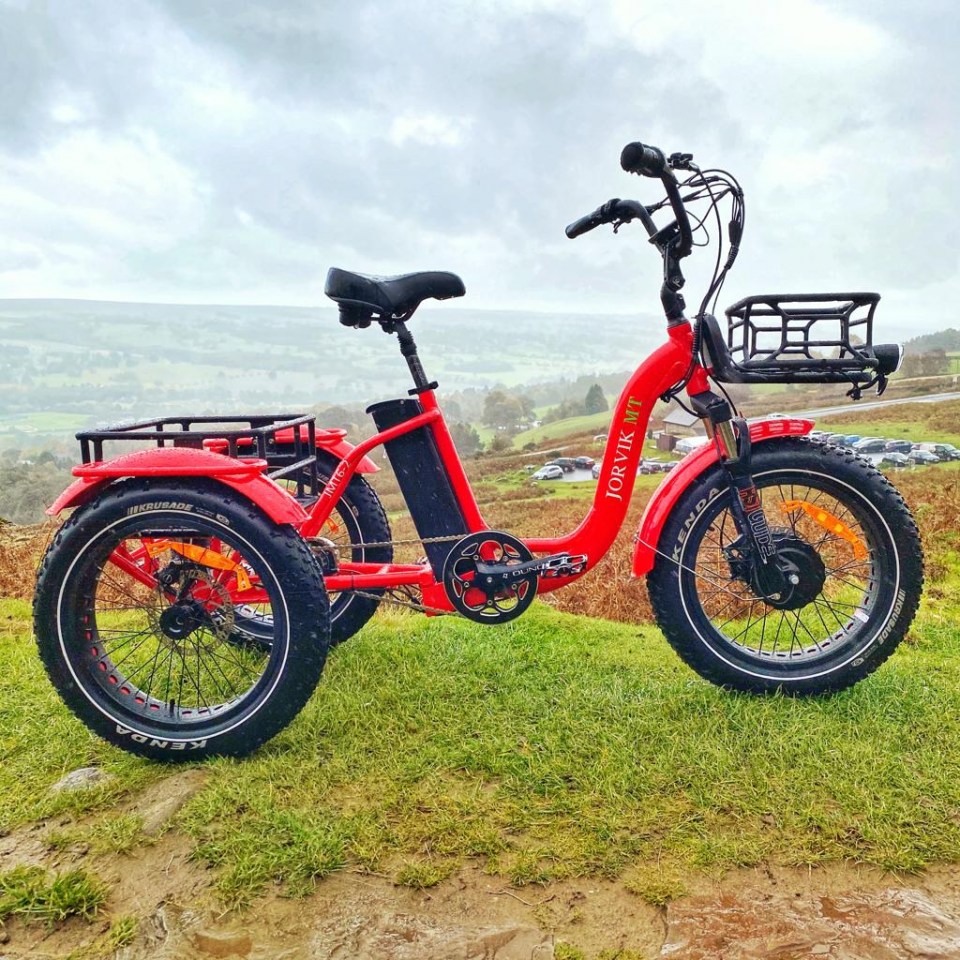How are disabled trikes helpful for those living with Parkinson's and MS?
8th June, 2021

What is Parkinson’s?
Parkinson’s is a progressive neurological condition, and in the UK alone, there are approximately 145,000 people living with a Parkinson’s diagnosis.
The easiest to spot symptoms of Parkinson’s include muscle stiffness, body tremors and slow physical movements, and abnormal fatigue. The degree to which it develops can vary, but broadly speaking it tends to develop slowly over a period of months, or even years. Over time, Parkinson’s makes it difficult to enjoy simple, daily activities, like walking to town, driving and cycling. This stands true for the father of Jorvik tricycles owner, Stuart Walker, as he was diagnosed with Parkinson’s a few years ago.
If you believe yourself or a loved one to be at risk of developing Parkinson’s, you need to contact your local Doctors office and make an appointment for a consultation as soon as possible.
What is Multiple Sclerosis?
Multiple Sclerosis, MS, is a condition that affects your spinal cord and brain. Our nerves are covered by Myelin which is made up of fatty substances and proteins. Myelin protects our nerve fibres in the central nervous system and enabling electrical impulses to quickly transmit from our brains to bodies. With an MS diagnosis, your immune system mistakes your myelin for a foreign substance, attacking it and damaging its structure. Once damaged, our electrical impulses are slowed down resulting in blurry vision, emotions, and problems with how we move and think.
Exercising with Parkinson’s or MS
Exercise is a vital component in maintaining your body’s ability to function, by helping to build muscle strength, flexibility, endurance, and improve physical and mental health. Poor mental health plays a key role in the decline in the life of an individual who lives with either Parkinson’s or MS. The reason for this is, they adopt a more negative outlook on life, and succumb to their diagnosis. Regularly exercising is a brilliant way to combat this as it releases dopamine, commonly known as ‘the happy hormone’. Dopamine works on a motivation, reward, reinforcement system. In short, you exercise to better your physical appearance and quality of life, you finish exercising and feel great because you know there’s a reward to come and eventually you begin enjoying exercising as it releases a rush of Dopamine, increasing your happiness levels.
Studies have shown that increasing your physical activity for at least 2 to 2.5 hours per week will reduce your quality of life decline, compared to those who exercised on a less frequent basis.
How can disabled trikes help?
Cycling is one of the more enjoyable forms of exercise and most of us have our own bikes or can borrow a family member's bike to get outside. However, people living with either MS or Parkinson’s will struggle using a two-wheeled bike as they don’t provide enough stability. Instead of a normal bike, opt for a disabled trike.
As the name suggests, disabled trikes or tricycles, have three wheels rather than the usual two wheels on a bike. With two wheels at the rear and one in the front, the tricycle covers a greater surface area, providing more stability and better control for the rider. This is of great benefit to those living with either Parkinson’s or MS, who are likely to be suffering from poor stability and balance.
Using a tricycle is greatly encouraged to those living with either MS or Parkinson’s to ensure they’re getting the exercise they need, whilst supporting them with extra stability and balance. Of course, take into account your ability and always remember to speak to your doctor prior to undertaking any strenuous exercise.
Finding the right tricycles and accessories to support you
When looking for a tricycle, it’s important to consider a variety of different factors.
- Does it store away easily?
- It is light enough to carry or lift, should you need to?
- Do you feel as though you’re in full control of the tricycle?
- Are you comfortable?
- Does it fit your body?
- Do you feel supported, and stable?
At Jorvik, we offer a range of electric tricycles to suit everyone, depending upon ability and needs. To accompany, browse our accessories page where you’ll find self-levelling pedals with toe clips, a supportive saddle with a backrest, a safety helmet available in a multitude of colours, and much more.
We support MS Society and Parkinson’s UK by donating money to help fund vital research to help in the search for cures and provide support to those who need it the most.